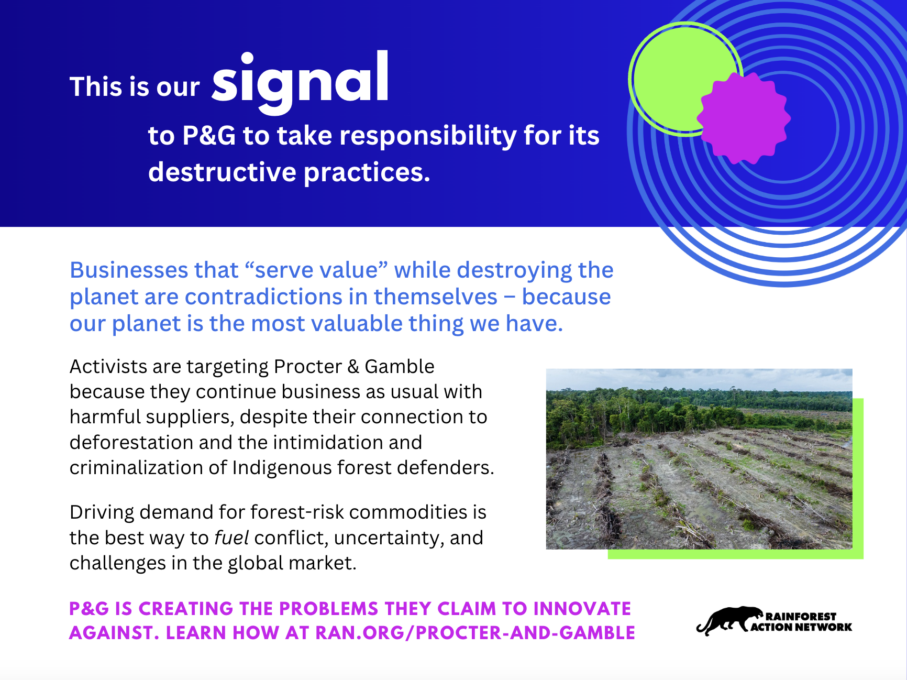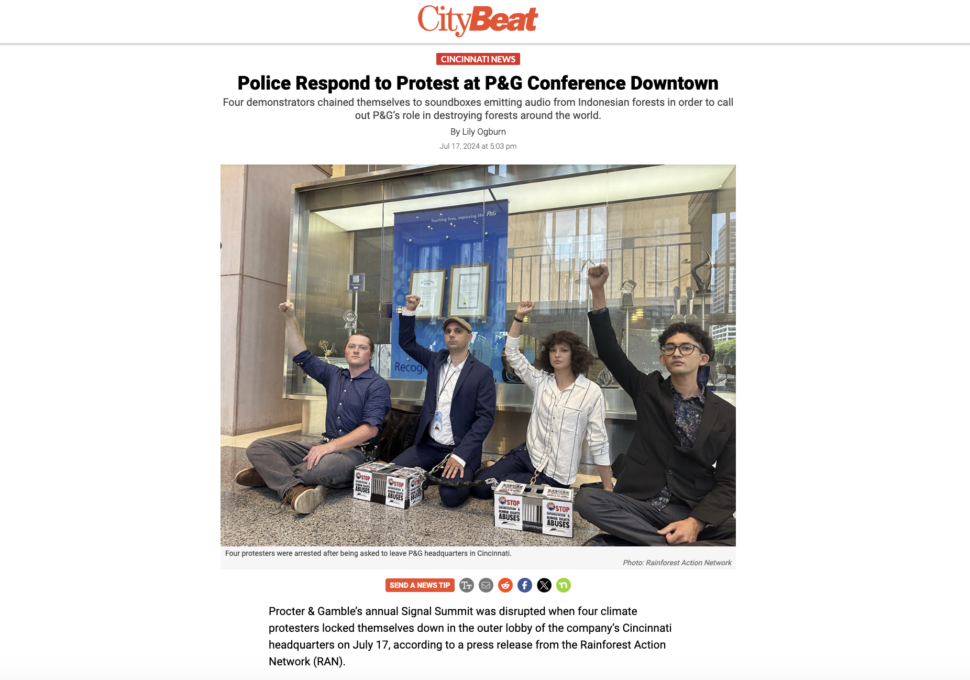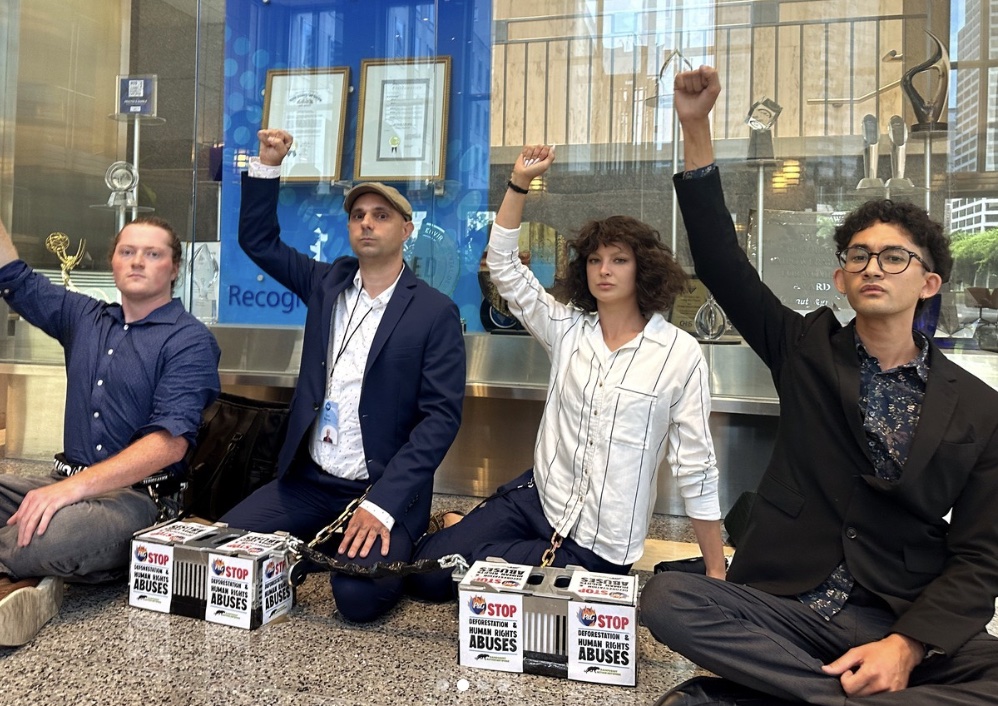Cincinnati community members came together with RAN last week to disrupt Procter & Gamble’s annual “Signal Conference,” an event for P&G employees that drew a large number of in-person and virtual attendees to watch top executives from P&G, YouTube, Kroger, Amazon and more talk about corporate sustainability.
The theme of this year’s event was “rising global uncertainty” — an appropriate theme amid global economic woes, geopolitical tensions and mounting environmental catastrophe. P&G leadership view themselves as a force for good amid rising global uncertainty, yet their harmful business practices are fueling social and environmental breakdown from Indonesia to the Canadian Boreal.

Cincinnati activists brought the pressure against P&G by holding a banner disruption and lockdown in P&G’s foyer. At one point, P&G’s Chief Communications Officer, Damon Jones, paused to listen to one of the activist’s impassioned pleas about Indigenous communities facing land grabs and corporate intimidation in P&G supply chains. A powerful soundtrack featuring rainforest sounds, chainsaws and community testimony rang out as he spoke.
Despite P&G leadership’s superficial efforts to listen, event organizers and local authorities swiftly acted to shut the protest down, arresting the four activists locking down the foyer.

P&G’s supply chains have caused extensive damage to the world’s rainforests, harming frontline communities and wiping out critical biodiversity underpinning vital global ecosystems. The failure of P&G to address these harms has made the world an uncertain and unsafe place for us all.
RAN and its allies have pushed P&G to clean up its act for years. Last May, leaders from Sumatra’s Pargamanan-Bintang Maria community traveled all the way from Sumatra, Indonesia to Cincinnati to call out P&G for its ties to Royal Golden Eagle, a corporate group notorious for its destructive operations on unceded Indigenous lands.
P&G leadership view themselves as a force for good amid rising global uncertainty, yet their harmful business practices are fueling social and environmental breakdown from Indonesia to the Canadian Boreal.
So far, P&G has not followed through on any of its promises to assist the Pargamanan-Bintang Maria people. P&G has even watered down its “No Deforestation” policies, and has failed to enact strong policies to protect human rights and land defenders in its supply chains in line with other major corporations.
The Signal Conference action, and many other RAN actions preceding it, are a testament to P&G’s stubborn resistance to the facts: Business-as-usual is no longer feasible on a planet in crisis, in which frontline communities are rising up to defend their rights. P&G thinks it knows how to tackle “rising global uncertainty,” but it’s all a ruse — P&G is a part of the problem, and we’ll keep telling them until they finally get the message.
